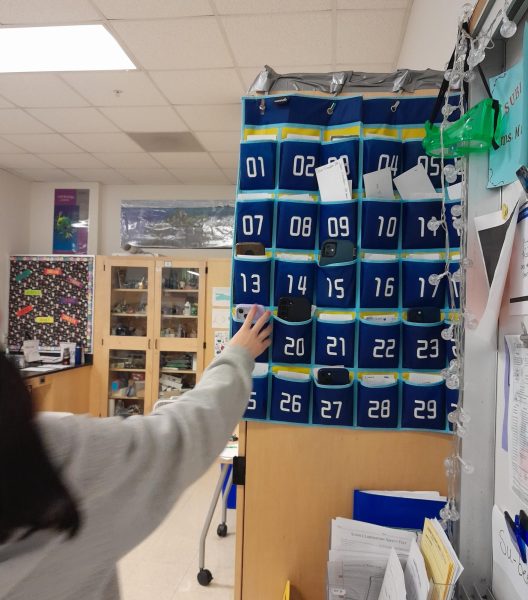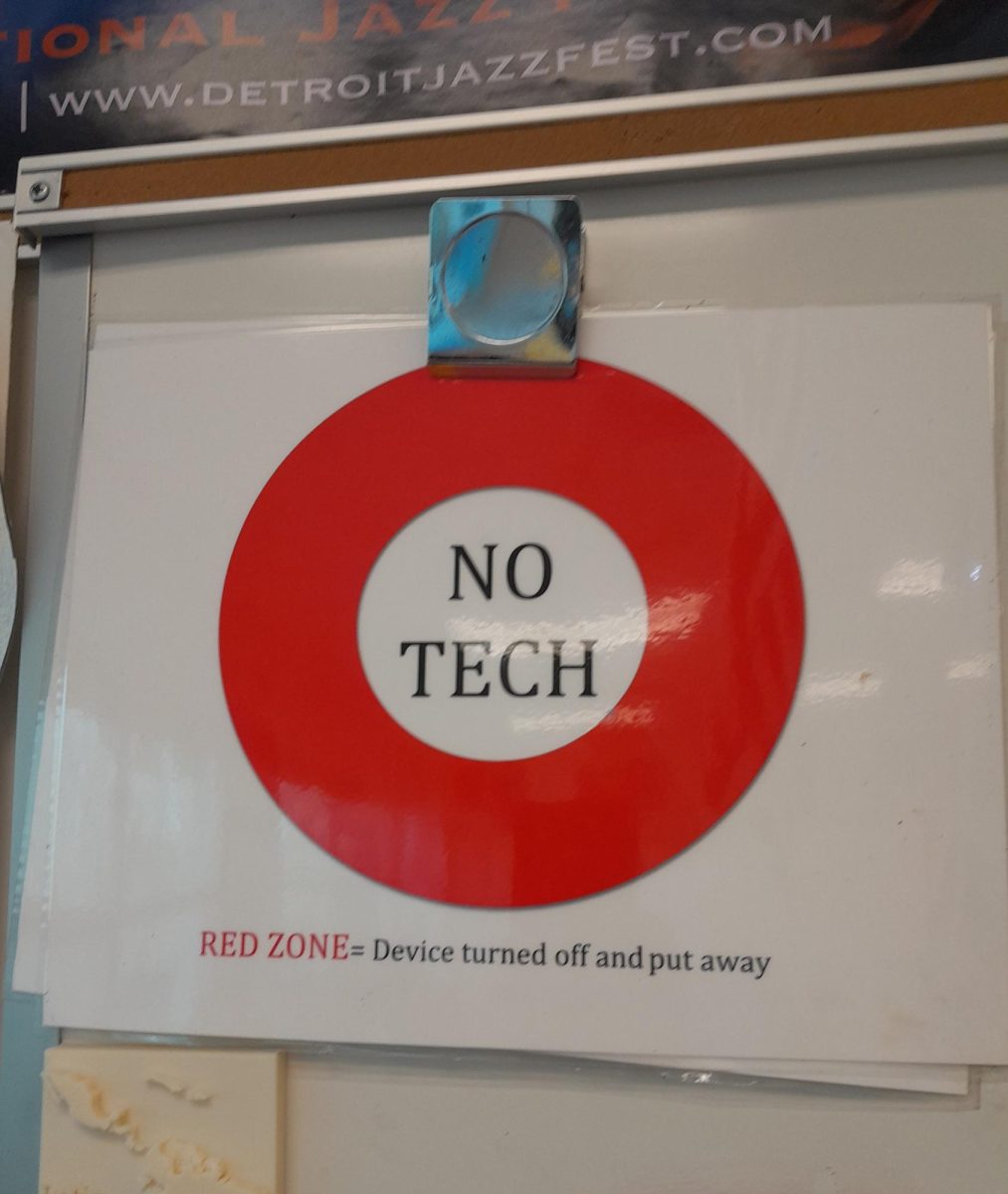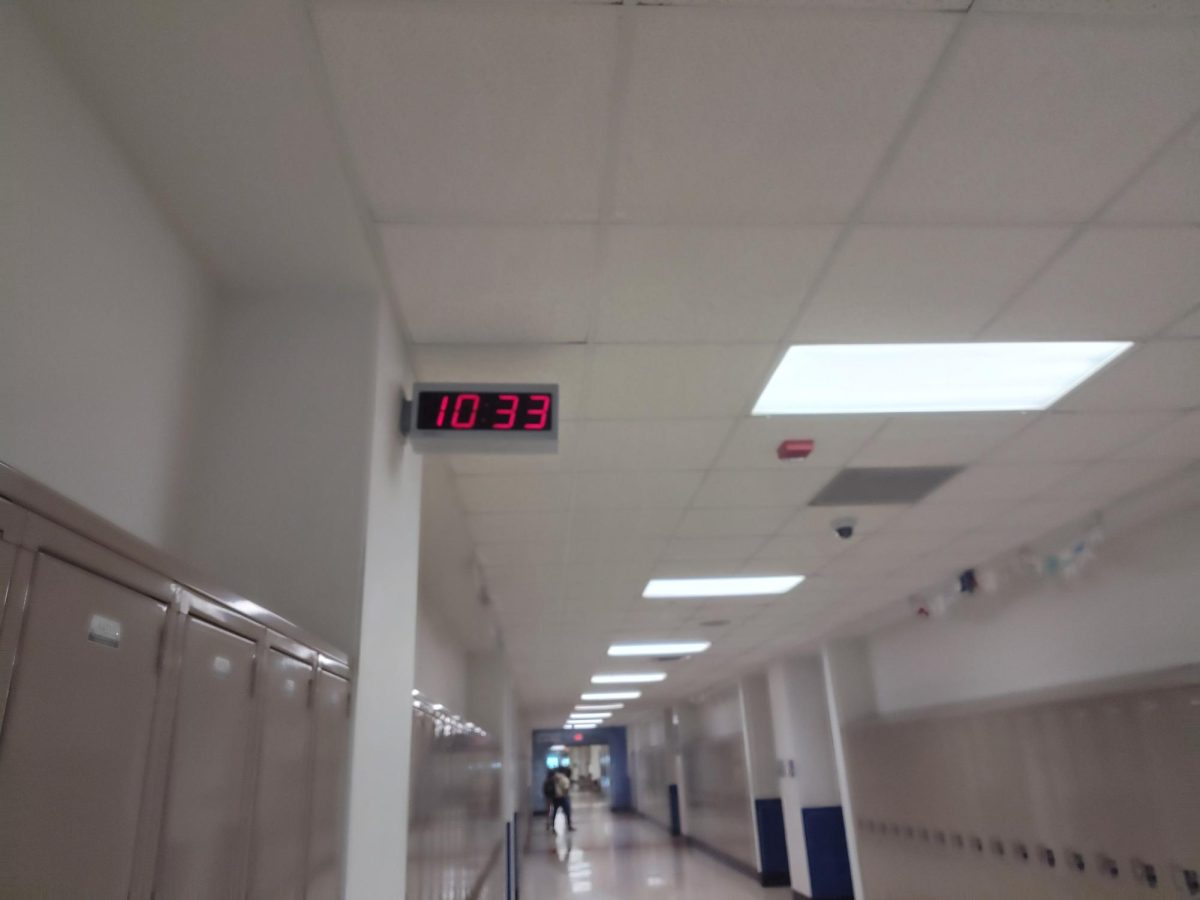Most of us have probably noticed varying phone policies in each class. Nearly all Skyline teachers have their own opinions on how phones affect distraction levels, social interactions, and access to resources. These opinions are reflected in their policies.
According to the Student Handbook, devices should be away unless a teacher says otherwise, except during lunch and passing time.
“I feel a little confused sometimes as to what our official phone policy is because it varies a lot from teacher to teacher,” says Spanish teacher Grahm Hannah. “I think that everyone involved would benefit from having a solidified expectation [that] is to be followed from class to class.”
Having a school-wide policy would save teachers time from enforcing their classroom policies. “I think that when a teacher is so focused on micromanaging phones, it takes away from the instruction for kids that are trying to pay attention,” says Miles Borgsdorf (‘24).
Teachers have various reasons for their phone policies. “[My] expectation is that phones [will] be away from the moment people walk in the door so that we’re able to engage with each other,” says Hannah. “I would like to ensure that [students are] talking to each other face to face, as well as focusing on the academics while in school.”
Socialization is a priority for many teachers. “When phones are out,” says Hannah, “I do notice that people interact far less with one another.”
Students are expected to use phones responsibly while at school. “Most people [know] when to use their phone and when not to,” says Mona Spiteri (‘26). “But when [teachers] have a stricter phone policy, it’s fine too. I don’t mind it.”
On the other hand, some believe lenient policies promote independence. “[Phones are] a distraction, but I think [it depends] on the student,” says Borgsdorf. “If [they] want to learn, then they can make the decision to put away the distraction.”

Although most students and teachers agree phones are a distraction, technology is already quite integrated with students’ lives. “[I use my phone] to stay updated if I receive any important texts from coaches or parents,” says Addie Kim (‘24).
Earbuds and headphones are also increasingly widespread among students, which expands the use of phones even further. “A lot of people, including myself, listen to music during class [work time],” says Borgsdorf. “I think music, especially, is a way for people to focus.”
However, teachers worry that students will be dependent on their phones. “Working through problems [is important],” says Hannah, “because the real world doesn’t work like your phone where you can click a button and something happens. You have to think through processes, you have to problem solve, you have to get things done.”
Teachers hope that socialization and collaboration will increase without phones. “Often people think that [the goal] is just trying to be focused on academics, but we do a lot more than just academic growth while we’re in school,” says Hannah. “We have a lot of social and personal growth too.”







